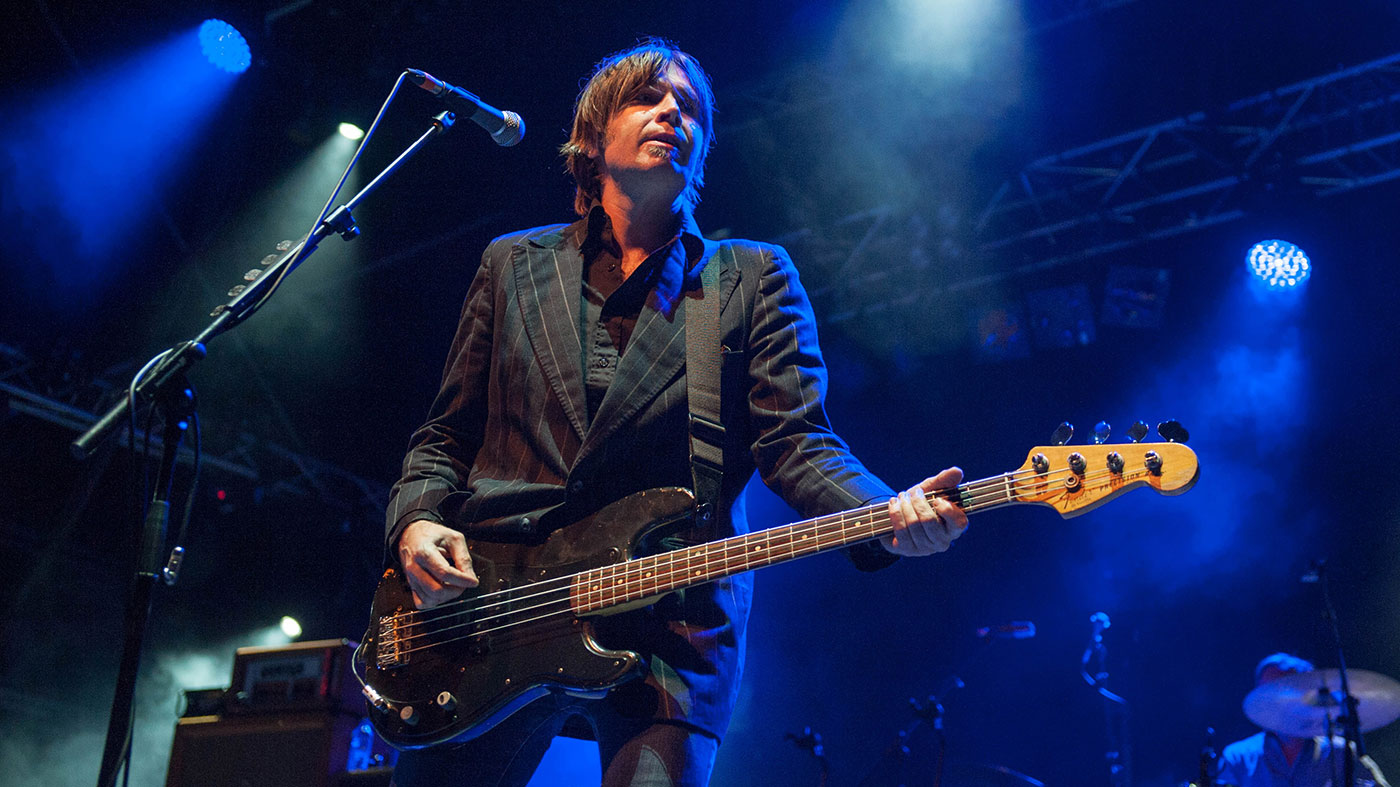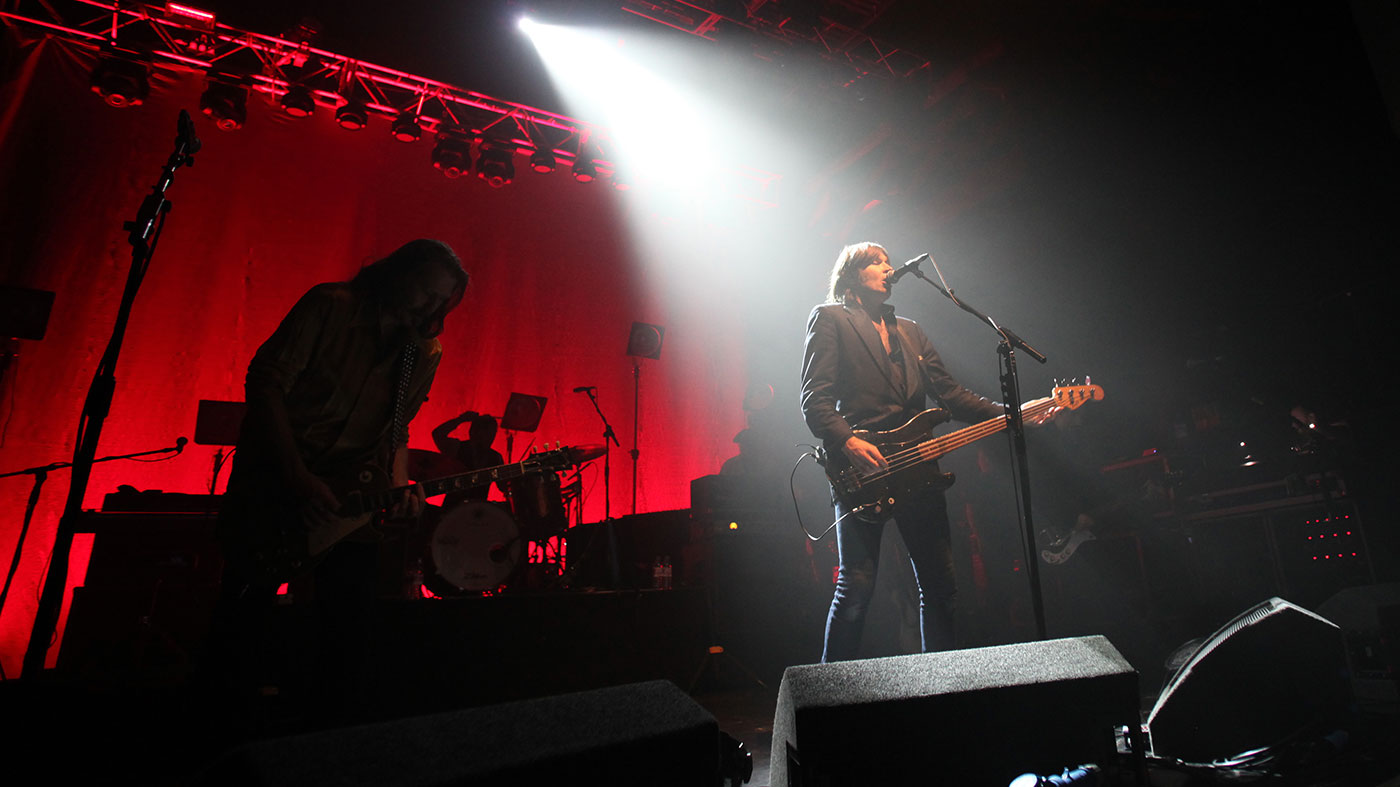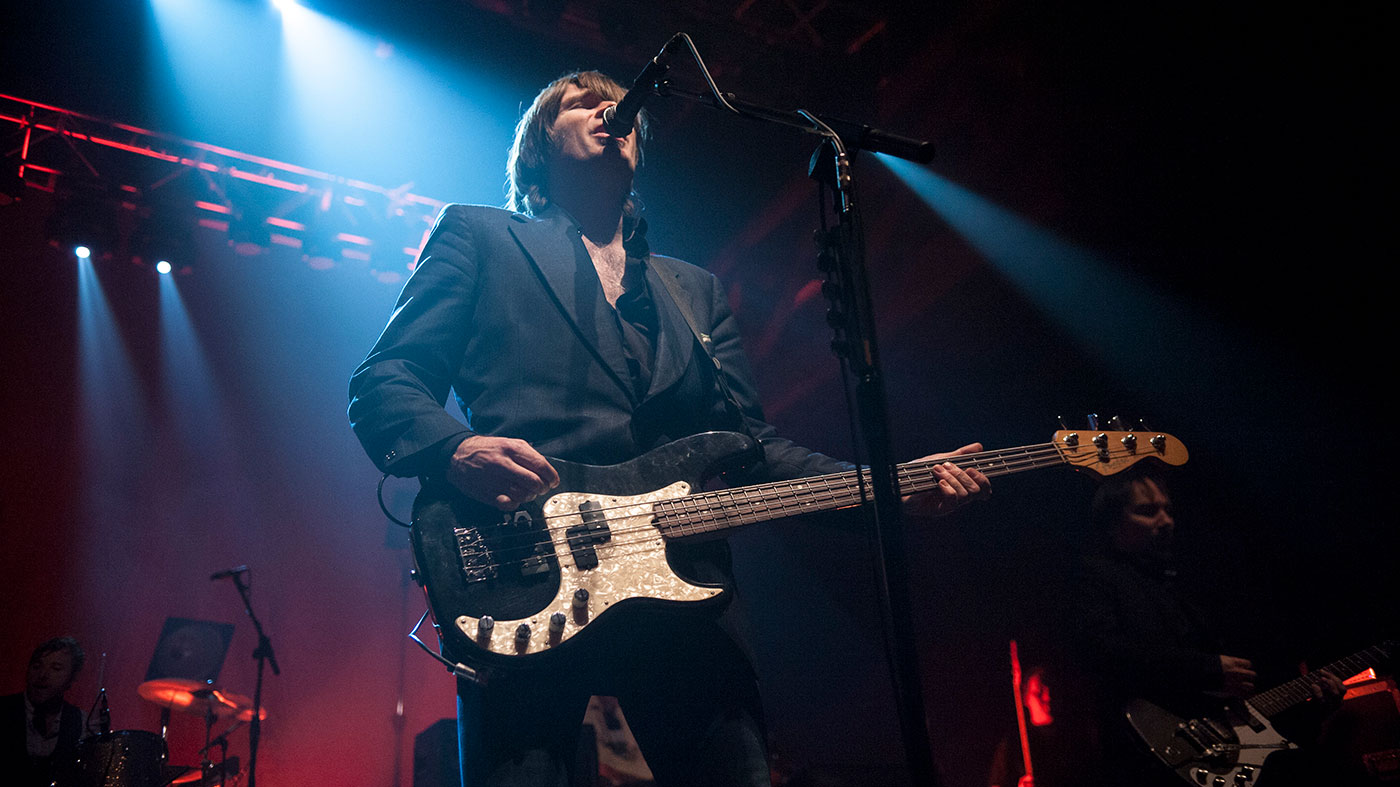Justin Currie: “Del Amitri’s songs had tons of arpeggiated guitar melodies. How did you fit the bass in?”
The Scottish frontman on bass and the band's past, present and future

These Are Such Perfect Days: The Del Amitri Story is a new authorised biography of Scottish rockers Del Amitri, written by an Australian author called Charles Rawlings Way with the help of Del Amitri singer and bassist Justin Currie.
It’s quite a coup, with the full story told in detail and - all credit to both chaps - tons of detail about Currie’s bass gear and influences. He’s still touring as a solo act, playing both guitar and bass, and took time out to speak to us about how the book came together.
These Are Such Perfect Days has turned out great, Justin.
I’m kind of neither guitarist or bassist. I’m a punk bassist. I learned from Peter Hook
“Yeah, it’s a lot more comprehensive than I thought. Initially I tried to put Charles off doing the damn thing, because I thought that ours isn’t that interesting a story and that there wouldn’t be a market for it, but he thought there was. He said he talked me into it, but really he talked himself into it!
“It’s quite gratifying, because seeing it all written down in one place is a good thing; otherwise, any historical record can often come from quite unreliable sources. With a book, you feel that that’s the go-to source. It’s not something we ever thought would happen, so we’re really pleased to have it.”
You’re a guitarist as well as a bassist, correct?
“I’m kind of neither. I’m a punk bassist. I learned from Peter Hook. Even though I spent my entire childhood listening to the Beatles, apart from a couple of tracks I never learned a Beatles bassline. But when I heard Unknown Pleasures by Joy Division, I ended up learning all the basslines because they’re all played quite high up on the neck. I can do that sort of a bassline, but once Del Amitri toured, I ended up simplifying what I did because I was singing at the same time.
Want all the hottest music and gear news, reviews, deals, features and more, direct to your inbox? Sign up here.
“Del Amitri’s songs had tons of arpeggiated guitar melodies. How did you fit the bass in? Yeah, with our early stuff especially, the whole concept behind it was no pause. The two guitars played melody and countermelody and then the bass played harmony; that came from listening to a lot of Morrissey. That was our generation. I also listened to a lot of Roger Waters.”

Gear and groove
What was your go-to bass?
“A Fender Precision, but the year’s up for debate. A few people told me it was 1976 when I bought it, but it might be ’78. It has an ebony fingerboard; everything’s black, and it has a black pickguard. I’ve also got a slightly more recent one which I still think is American-made; it’s a cross between a Jazz, a Precision and a Music Man. It’s got a graphite neck and you could literally throw it off a cliff, but it didn’t really sound like a Precision.
I’m really bad at grooving. That’s one of the things we were always looking for in the studio
“You could set it on Precision settings, but it didn’t have that woody, natural sound. The thing I loved was its flaws as much as its advantages. The A on the fifth fret of the E string is always the loudest note on the bass, which is not true of other basses. You learned to play around it, although A is a brilliant rock key.”
We’ve also seen you playing a StingRay before now.
“We bought that because we saw a friend playing it at [Glasgow venue] King Tut’s Wah Wah Hut, and the DI sound was an amazing boost to the bottom F, so we basically bought it because we really loved that bottom F boost on it. We still use that.”
Are you still improving as a bassist, or have your skills peaked?
“They peaked some time ago! I tend to choke the bass a bit, because I hold the strings a bit when I’m plucking them, and I’ve never really got my head around the fact that you’re not supposed to do that.
“When we first started out I used to strum the bass. I had a five-string Aria that you could strum like a guitar very high up the neck. It actually sounded quite good on records but live it was absolutely terrible, especially with those crappy '80s PAs. You put that much harmonic turbulence through them and they just couldn’t fucking cope. I had to relearn to play with the kick drum.
“After that, I just never got any better. I can play a few notes around the kick drum, and the odd fill, and that’s about it. I’m really bad at grooving. That’s one of the things we were always looking for in the studio, and it usually involved getting someone else to play the bass.”

Looking back
Do you slap?
“No. Iain [Harvie, Del Amitri guitarist] and I played in a country band that I briefly had a slap bass solo in. That was bonkers. We also played the blues on slap bass, which was quite revolutionary, for want of a better term.”
Any dabbling in fretless?
“No, we always kind of avoided the fretless. We had a bass player that we’d hire to do particular things for us. If I couldn’t do something and Iain couldn’t do it, we’d admit it, but occasionally we used it for solo stuff. I think I used a pick for it, on tracks that didn’t actually get released.”
What about now? What you are up to at the moment?
The problem with modern marketing and promotion is you do it all on a computer... It’s like you’ve got a f**king office job
“I’ve recently been writing, which is something I haven’t done for about 20 years - because Iain and I were talking about looking at maybe going on tour. Whether that happens or not, I really don’t know. Last year, I did a couple of promo tours, and me and my manager put a record out, which was an interesting learning experience. The problem with modern marketing and promotion is you do it all on a computer, which is the last thing that I ever wanted to do. It’s like you’ve got a fucking office job or something! You don’t meet anybody you’re emailing.
“Despite the fact that you can communicate with anyone in the world, you can end up feeling kind of isolated. I found that after a while I was getting up every morning and just sitting at the computer for a couple of hours. It’s not what you get into a band for. You want to be giving out fliers, playing on the radio and getting a gig.”
Looking back over your career, would you say you achieved everything you wanted with Del Amitri?
“I think so. I don’t think we ever felt we did a classic album. That was always our aim. We had a very weird period between 1998 and 2001 when we just made the same records, because our previous records had been so successful and a couple of our singles hadn’t sold that well; we were under quite a lot of pressure to produce more commercial material, whereas that was never the remit.
“We had three really successful albums in the UK, and then the fourth one sold significantly less. It was still quite a lot in today’s terms, but back in the day it was considered something of a disappointment. Then immediately, the pressure came on. That was a really tricky period.”
But you’ll keep performing, we hope?
“Yeah, I write songs because there’s not a lot else I can do. I’m really sorry about that!”
These Are Such Perfect Days: The Del Amitri Story is out now on Urbane Publications.

